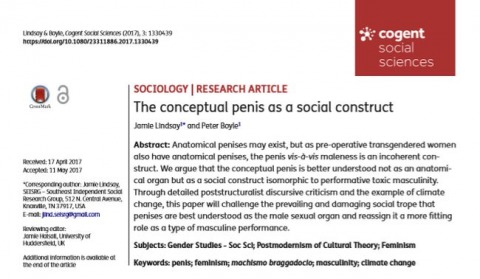
The Underground Thomist
Blog
Conference on FatherhoodSaturday, 09-01-2018
Fatherhood is taking it in the chops these days, and fanatics use the term “patriarchy” as a synonym for oppression. Against all that is this: Patriarchy: Fatherhood and the Restoration of CultureThursday 11 October – Saturday 13 OctoberTrinity International University, Deerfield, IllinoisI can hardly believe that the organizers were brave enough to give this conference the title “Patriarchy.” Take that, you foes of fatherhood! Doesn’t it give you a thrill? But this isn’t going to be a chest-thumping festival. Naturally, distortions of manhood and fatherhood will be discussed too. Almost forgot to mention that along with fourteen other speakers, I’ll be giving one of the talks, on “What Makes Men Men.”
|
Varieties of ShameThursday, 08-30-2018
Shame is not the same as guilt – or perhaps it would be better to say that there are several kinds of shame. To hide one’s sins from others really is the shame of guilt. But to practice modesty is the shame of innocence. Even as to the shame of guilt, a distinction must be made. One might conceal his sins to escape the punishment he deserves. But he might also conceal them to spare others exposure to his taint. I wouldn’t condemn a man for that. Related:Trying to Shame the ShamelessWhat Conscience Isn’tAn Angry Professor
|
It Seems Like StrawMonday, 08-27-2018
Query:I am a Chinese scholar. It is said that Thomas Aquinas gave up his research on rational theology before his death and confessed his research is nonsense and it means he retrogressed to Tertullian standpoint (embracing credo quia absurdum). Is this true?
Reply:Good question. The view of Thomas Aquinas which you mention is quite common, but profoundly misleading. At several points in his life, St. Thomas is said to have experienced divine visions. In one of them, Christ appeared to him and said, “You have written well of me, Thomas. What would you ask of me?” St. Thomas replied, “Only you, Lord.” Later, at the end of his life, he is said to have experienced another vision. Afterward, he told one of his brothers in the Dominican order that he could no longer continue to write, because in comparison with what had been revealed to him, all that he had written seemed like straw. This is the statement which gives rise to the misunderstanding about which you ask. But it is very important to remember that St. Thomas never repudiated what he had written before. Though his past writing seemed to him “like” straw in comparison with the vision, it was very good so far as it could go. Straw itself is good. The Bread of Heaven is better. This should not surprise us. Throughout his life, St. Thomas had always argued that what can be known about God by reasoning is excellent, but it is only about God. The vision of God in Himself, granted to the souls of the redeemed in the next life, is infinitely superior. Now that he was standing at the very door to that life, it was difficult for him to give his attention to anything less. As St. Paul had written, in a passage which St. Thomas quoted often, “For now we see in a mirror dimly, but then face to face. Now I know in part; then I shall understand fully, even as I have been fully understood.” Related:ReflectionContentmentMove That Can Six Inches
|
Then Are All Good Men Good Statesmen?Saturday, 08-25-2018
Query:I read your argument that a bad man cannot be a good statesman – a theme I always enjoy bringing up when I teach. There are interesting dilemmas, however. I was not old enough to vote in 1972, but even knowing then what I know now, I do not believe a vote for McGovern could be justified -- which leaves me with Nixon. But I see no other choice. Your view?
Reply:I take your point about voting for President Nixon instead of Senator McGovern even though Nixon was a scoundrel, but I don’t see the dilemma the same way you do. I am only saying that a bad man cannot be a good statesman. I am not saying that a good man is inevitably a good statesman. The remark I’ve just made uses the term “good man” in your sense of the term. By a good man, I think you mean someone who has all of the moral virtues, even though he may lack prudence. Senator McGovern certainly lacked prudence, and he would have made a terrible president. But there is another, older way to take the meaning of the term “good man.” For in the classical view, prudence is one of the moral virtues. In fact, it is their intellectual pivot, because it is nothing more than the wisdom to know how to pursue the ends which the other virtues make us desire. In this sense, a completely virtuous man is not one who possesses justice, fortitude, and temperance, even though he may lack prudence. He is one who possesses justice, fortitude, temperance, and prudence. Then would a good man in that sense inevitably be a good statesman? The answer is still “No.” Someone might be prudent in the everyday things with which we all have to deal, but not prudent in the larger matters which concern the body politic. If he has all the other moral virtues, and moreover he has not just everyday prudence but also political prudence, then I would say yes, he has what it takes to be a good statesman – but not every ordinary good man does. Far from it. Related:Commentary on Thomas Aquinas’s Virtue Ethics
|
PravdaMonday, 08-20-2018
Those who hold the views dominant among university faculty often mock those who comment -- well, on the fact that their views are dominant among university faculty. Recently I came across the statement that when persons like me complain about the overwhelming prevalence of secular leftist ideologies in the classroom, we are really merely complaining that students at universities “meet real life.” No, we are complaining that the students there don’t meet real life. Real life includes all sorts of people with all sorts of ideas. Academia doesn’t. Is the “meeting real life” excuse merely naïve, or is it offered in bad faith? Maybe a little of both. You can see why some scholars might want to believe that they represent “real life.” If they were ever to admit to themselves how they shut out the views they dislike, it would eat away at their picture of themselves as critics of the “narratives of power” and protectors of society’s underdogs (of whom, by the way, most have little first-hand knowledge and even less respect). On the other hand, it seems likely that many university people really don’t know how narrow their intellectual culture is. Since the only people they ever meet are just like them, they think they represent the Great Center, and that their little end of the spectrum is the whole universe of reasonable discourse. By the way, they censor themselves just as ruthlessly as they do others. If a scholar of this sort ever catches himself implying that there might be something questionable about some behavior that PC norms hold sacrosanct – yes, it happens – he hastens to cover himself by saying, “Not that there’s anything wrong with that.” And he tries to believe that this is true. Not only does his social place depend on covering himself, but so does his sense of himself as someone who belongs. Related posts:The Future of the Life of the MindThick Descriptions, Thin Skins
|
The Ironic PoseMonday, 08-13-2018
The philosopher Thomas Nagel’s famous article, “The Absurd,” concludes, “If sub specie aeternitatis there is no reason to believe that anything matters, then that doesn’t matter either, and we can approach our absurd lives with irony instead of heroism or despair.” I’ve quoted that statement before, but until recently, I hadn’t realized that some people find it uplifting. One online reader remarks, “This is the most beautiful thing I've ever read.” Let’s think about it. If it is true that nothing matters, then what difference does it make whether we live ironically, heroically, or in despair? Forgive me for being obvious, but if it does make a difference, then something does matter. Our task, should we choose to remain men – and we always have the option of declining -- is to find out what. Related posts:Déjà Vu, Part 1 of 2Déjà Vu, Part 1 of 2
|
A Gender Studies HoaxWednesday, 08-08-2018
Satire is a wonderful tool, but what do you do with something like gender studies? Its craziness accelerates so rapidly that by the time the satire is published, reality has outpaced it. These folks have figured it out: Get it to satirize itself. Their article is titled “The Conceptual Penis as a Social Construct.” It’s pure, deliberate nonsense. But it was submitted and accepted for publication as bona fide scholarship. If you haven’t come across this before, the authors describe the scam here. It’s a nice touch that they incorporated text into the article from the Postmodernist Essay Generator. I’ve had fun with the generator for years. You can generate new, nonsensical postmodernist essays as often as you like, just by refreshing the screen. The climate change touch is nice too. One day at the elevator a colleague and I were chatting about how cold winter was that year. Tongue in cheek, I offered the explanation, “Global warming.” Not realizing that I was joking, he agreed. Alan Sokal on his own classic hoaxThe Sokal hoax itself
|






